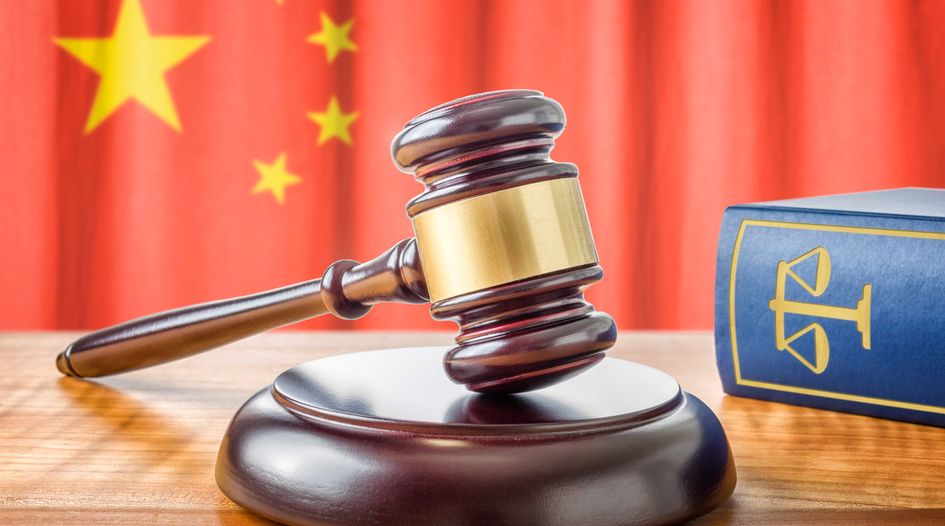New bad-faith invalidation clause to strengthen Trademark Law against malicious registration

As part of its efforts to strengthen China’s Trademark Law, the China National Intellectual Property Administration (CNIPA) has introduced a draft amendment that explicitly includes bad faith as an independent ground for refusal of a trademark application.
On 13 January 2023 the CNIPA published the draft fifth amendment to the Trademark Law on its official website, along with a call for public comments and some explanatory notes. According to the administration, China’s Trademark Law has not yet met the market’s needs or matched the pace of its development. The main issues with the current law are that the system "emphasizes registration, but not use", the scope and strength of the fight against malicious trademark registration is still weak and protection for well-known trademarks is not strong enough.
Preventing registration and use of trademarks in bad faith
The basic principle of China's Trademark Law is that registered trademarks are legally protected so long as honesty and good faith are respected. However, the draft amendment would explicitly include bad faith as an independent ground for refusal of a trademark application. Article 22 outlines that applicants shall not apply for trademark registration in bad faith and offers several examples what constitutes it, such as:
- disrupting the trademark registration order by applying for large numbers of trademarks without intention to use;
- applying for trademark registration by deceptive or other improper means;
- applying for the registration of a trademark that is detrimental to national, social and/or public interest or evokes other serious and negative effects;
- violating the provisions of Articles 18 (well-known marks), 19 (agent) and 23 (infringement of prior rights) of the Trademark Law;
- intentionally infringing the rights or legitimate interests of others or seeking undue advantages; and
- filing other malicious registration applications.
The inclusion of bad faith as a separate condition for refusal in the examination, opposition and invalidation procedures is undoubtedly a major step forward and a response to international treaties to which China is a party, such as the Regional Comprehensive Economic Partnership.
The current provision "filing for the registration of a trademark in bad faith without intention to use" becomes much more specific when it becomes “a large number of applications”, which is directly equivalent to bad faith.
Since violations of Articles 18, 19 and 32 are already grounds for invalidation, it would be advisable to expressly include these as exceptions to the five-year limit for filing an invalidation action.
Room for improvement
Unlike the above provisions, the general clause that includes all "other bad faith applications" is not mentioned as a ground for invalidation in Article 44, despite there being an argument that bad faith should always constitute a ground for invalidation. Inspiration could be taken from the European Court of Justice’s judgment in the Sky case (C-371/18). Bad faith may be established if there are objective, relevant and consistent signs showing that when a trademark application was filed, the applicant intended to undermine third-party interests in a manner inconsistent with honest practices or to obtain an exclusive right for non-traditional purposes without targeting a specific third party. So, it is better to include Article 22(6) – filing other malicious registration applications – in the refusal, opposition and invalidity grounds.
Fines and damages
The draft amendment specifies the amount of fines applicable to bad-faith trademark registrations (Article 67). It also states that where bad-faith applications could harm state or public interests or cause significant adverse effects, the relevant authorities will initiate prosecution. In addition, it provides that if bad-faith applications cause harm, compensation can be claimed via civil litigation (Article 83). In that regard, it has been suggested that such compensation, or at least proper reimbursement of legal fees, should be awarded at the end of a successful administrative litigation, without the necessity of fresh civil litigation. The draft also establishes a counterclaim system in case of such civil litigation (Article 84). These provisions – which introduce existing judicial interpretations and practices into the law – aim to make bad-faith applications economically unprofitable, which will certainly have a considerable deterrent effect on potential malicious applicants.
Finally, the draft amendment also specifies that when an (infringing) trademark is invalidated, the owner of this trademark shall pay compensation corresponding to the period between the registration and invalidation, but only if it acted in bad faith (Article 48). Such a condition of bad faith is highly controversial because it implies that trademark registration confers the right to infringe unless bad faith is proven. Indeed, currently under Article 47(1) and (2), invalidation has a retroactive effect and the trademark is deemed to have been non-existent from the beginning. The only reference to bad faith is where the trademark had been enforced against a third-party infringer or had been the object of a contract and where the judgment or contract had been executed. In such cases, the money involved should not be reimbursed, except in cases of bad faith. Article 47(2) did not envisage situations where the owner of an invalidated trademark was itself an infringer. Adding bad faith as a condition for an infringer to be liable raises serious questions and makes it more difficult for damages to be awarded at the end of the invalidation procedure.
The final main issue with China’s Trademark Law – weak protection for well-known trademarks – will be examined in detail next week.
This is an Insight article, written by a selected partner as part of IAM's co-published content. Read more on Insight
Copyright © Law Business ResearchCompany Number: 03281866 VAT: GB 160 7529 10

